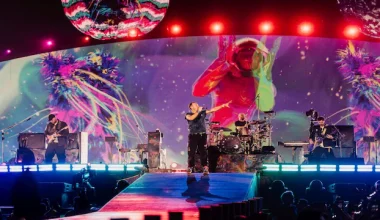The Indian music industry has always been a rich tapestry of diverse sounds, genres, and traditions. From soulful classical compositions to the energetic beats of Bollywood and the rise of independent artists, the music industry in India showcases a vibrant cultural legacy. This blog explores its evolution, the influence of technology, and the emerging opportunities for musicians and producers.
The Historical Roots of Indian Music
Indian music dates back thousands of years. It began with Vedic hymns and evolved into a structured system of classical music, encompassing Hindustani and Carnatic traditions. These forms emphasized intricate rhythms and melodies, often blending with spiritual undertones. This foundation paved the way for modern forms of music.
As time passed, folk music gained prominence, reflecting the cultural diversity of India. Songs in various regional languages narrated tales of love, devotion, and life. Each state contributed its unique flavor, enriching the Indian music industry with authenticity and depth.
Bollywood: The Pillar of Indian Music
Bollywood has been synonymous with Indian music for decades. It created an ecosystem where film songs reached audiences nationwide. Bollywood tracks, with their catchy lyrics and mesmerizing beats, continue to dominate the playlists of millions.
Icons like Lata Mangeshkar, Kishore Kumar, and A.R. Rahman have shaped the soundtracks of generations. Their contributions have not only influenced India but also earned global acclaim. Bollywood’s role in popularizing Indian music remains unparalleled.
The Rise of Independent Artists
In recent years, the Indian music industry has witnessed the emergence of independent artists. Platforms like YouTube and Instagram have allowed musicians to bypass traditional barriers, reaching audiences directly. Independent genres, such as pop, rap, and electronic, are growing steadily.
Artists like Divine, Prateek Kuhad, and Ritviz have redefined the music scene with their unique styles. Their success underscores the power of digital platforms in democratizing music distribution.
Regional Music: A Cultural Treasure
India’s linguistic diversity ensures a wealth of regional music traditions. From Punjabi bhangra to Tamil film music and Marathi lavani, regional music holds a strong place in the Indian music industry.
The rise of streaming services has brought these regional gems to the forefront. Audiences from all over the world now enjoy Indian music in its many forms, creating a global appreciation for its cultural depth.
Technology’s Impact on Indian Music
The advent of digital platforms has transformed the Indian music industry. Streaming services like Spotify, JioSaavn, and Gaana have made music more accessible than ever. These platforms cater to diverse tastes, ensuring that listeners can explore everything from devotional songs to extended plays of electronic music.
The rise of Beatport and other platforms has further supported Indian electronic artists. Producers and DJs can now showcase their work internationally, highlighting India’s growing influence in global music trends.
Challenges in the Indian Music Industry
Despite its growth, the industry faces challenges. Piracy remains a persistent issue, affecting revenue streams. Artists and producers often struggle with fair compensation, especially in a market dominated by big labels.
However, the emergence of independent platforms and fair-use policies are creating a more balanced environment. The focus is shifting toward sustainable models that benefit creators directly.
Global Reach of Indian Music
Indian music has crossed borders, appealing to international audiences. Collaborations with global artists and the growing popularity of Bollywood abroad have expanded its reach. Events like Coachella featuring Indian artists exemplify this global recognition.
The blend of traditional and contemporary sounds ensures that Indian music resonates worldwide, bridging cultural gaps and promoting unity.
Supporting Emerging Talent
The Indian music industry is nurturing fresh talent through initiatives and contests. Programs like Coke Studio and MTV Unplugged provide platforms for young musicians to showcase their skills. These efforts ensure that the industry continues to thrive with new voices and perspectives.
The Future of Indian Music
The future of the Indian music industry looks promising. With advancements in technology and increasing global collaborations, Indian music is set to scale new heights. Independent artists and regional genres will play pivotal roles, ensuring diversity and innovation.
In conclusion, the Indian music industry is a dynamic and ever-evolving space. Its rich history, combined with modern advancements, ensures that it remains a significant cultural force. As it continues to grow, it offers immense opportunities for artists, producers, and fans alike.
For further reading, explore these related articles:
- The Ever-Evolving World of Music Entertainment
- Top 10 Music Companies in India – Shaping the Future of Music
For additional resources on music marketing and distribution, visit DMT Records Private Limited.






